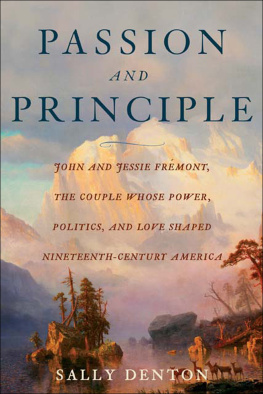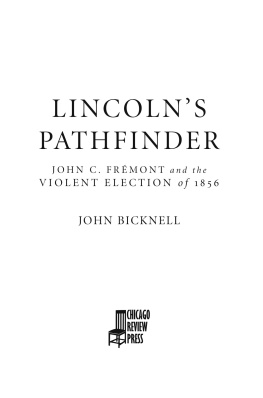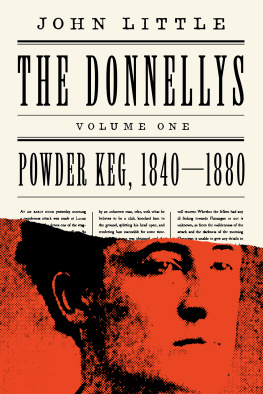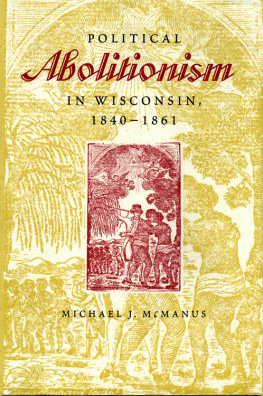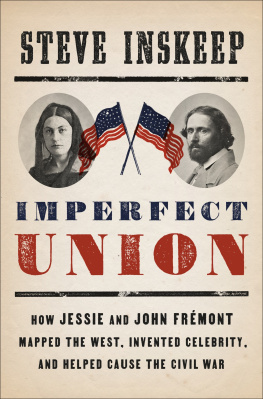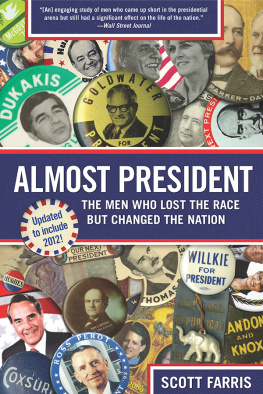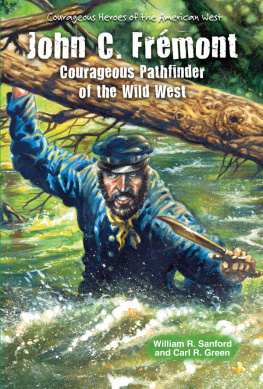PASSION AND PRINCIPLE
BY THE SAME AUTHOR
Faith and Betrayal
American Massacre
The Money and the Power (with Roger Morris)
The Bluegrass Conspiracy
John and Jessie Frmont, the Couple
Whose Power, Politics, and Love Shaped
Nineteenth- Century America
SALLY DENTON
BLOOMSBURY
Copyright 2007 by Sally Denton
All rights reserved. No part of this book may be used or reproduced in any manner
whatsoever without written permission from the publisher except in the case of
brief quotations embodied in critical articles or reviews. For information address
Bloomsbury USA, 175 Fifth Avenue, New York, NY 10010.
Published by Bloomsbury USA, New York
Distributed to the trade by Holtzbrinck Publishers
All papers used by Bloomsbury USA are natural, recyclable products made
from wood grown in well-managed forests. The manufacturing processes
conform to the environmental regulations of the country of origin.
LIBRARY OF CONGRESS CATALOGING-IN-PUBLICATION DATA
Denton, Sally.
Passion and principle : John and Jessie Fremont, the couple whose power, politics, and love shaped nineteenth-century america / Sally Denton.1st U.S. ed.
p. cm.
Includes bibliographical references and index.
eISBN 978-1-59691-765-1
1. Fremontjohn Charles, 1813-1890. 2. Fremont,Jessie Benton, 1824-1902. 3. Fremontjohn Charles, 1813-1890Marriage. 4. ExplorersWest (US.) Biography. 5. PioneersWest (U.S.)Biography. 6. GeneralsUnited StatesBiography. 7. PoliticiansUnited StatesBiography. 8. Women pioneersWest (U.S.)Biography. 9. Politicians' spousesUnited StatesBiography. 10. Married peopleUnited StatesBiography. I. Title.
E415.9.F8D46 2007
973.6092'2dc22
[B]
2007002000
First U.S. Edition 2007
1 3 5 7 9 10 8 6 4 2
Typeset by Westchester Book Group
Printed in the United States of America by Quebecor World Fairfield
For Bob Trapp,
finest newspaperman in the American West
of any century
CONTENTS
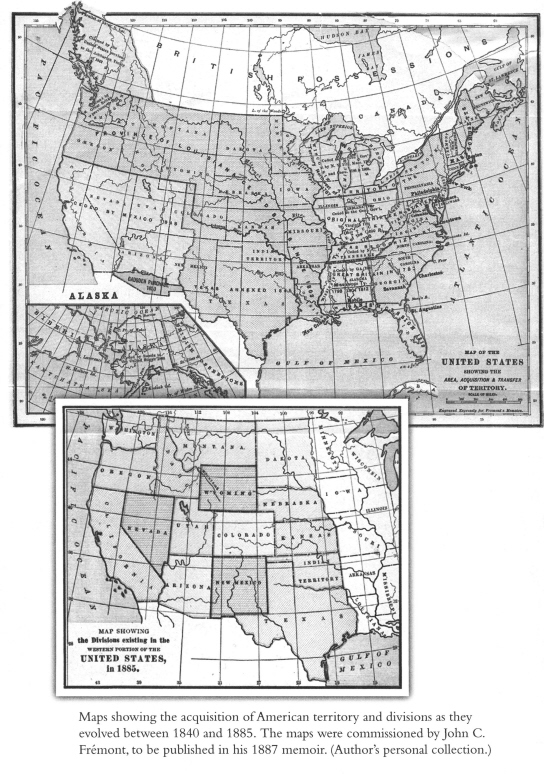
It is late February 1840. The air is crisp, though not cold. The trees are laden with tiny buds that announce the arrival of Washington's all-too-brief spring, those few weeks of starkly blue skies and fresh foliage before the city begins the inexorable march into its season of heat and humidity. The rudiments of the French urban planner Charles L'Enfant are in placethe radial avenues, emerging from the Capitolbut still just a grand vision, not a reality. The unpaved roads, overgrown fields dotted with shanties, unsightly slave pens, open sewage pits, animals roaming the city of thirty thousand souls, makeshift saloons and gambling hallsthe seat of government a far cry from the elegant capital of the future.
Georgetown's elite Miss English's Female Seminary is an oasis of gentility near the still-crude capital of marble edifices and muddy streets. The tree-shaded estate on the heights of the Potomac is surrounded by manicured rose gardens and strawberry fields, and by the mansions of diplomats and bureaucrats whose Thoroughbred horses carry them the three miles into the seat of government. A very proper Danish woman, Miss English, boasts twenty-five teachers and forty-five boardersthe daughters of the South's most cultivated families.
Jessie Ann rushes into the drawing room, breathless with anticipation at seeing her father. She is a raven-haired beauty, he a towering frontiersman. The two have had a legendary bond throughout her sixteen years of life, Jessie acting as Thomas Hart Benton's constant companion and confidante, a surrogate for her invalid mother. They are the talk of the town, traveling in the most rarefied social and political circles of this raucous, dusty capital. Their symbiosis is envied, her devotion to him inspiring. She has missed him dreadfully and can't wait for their reunion. She is known for her magnetism and lovelinessconsidered by many to be the prettiest girl in Washingtonthe large, expressive brown eyes, the rich, dark hair parted in the center and pulled back in the fashion of the day, the full lips and slim figure hinted at beneath her rustling silk gowns. He is not just any father, not merely the dominant man in her life, but also the most powerful senator in America.
She is his consort and collaborator, his apprentice and creation. But now she is rebelling at her father's sending her to what she disdainfully calls "a Society School." She has no use for the petty restrictions of the snobbish finishing school. She is determined today to persuade her beloved father to resume her tutoring at his knee.
She is desperate to return to the small desk that sits in the corner of Benton's library next to the fireplace, where a young Jessie has served as her father's secretary, taking his dictation and ultimately helping him research and write his many speeches. It is at this desk that she has seen and heard so much, all that has made Miss English's seem so shallow and irrelevant. It is in this book-lined room where for years she sat patiently and quietly as a string of dignitariespoliticians, explorers, scientists, and diplomatshave come to see her father, a prevailing force for American expansion and what would become Manifest Destiny. Many Washington men covet this role Benton enjoys with Jessie. She has already had two proposals of marriage, including one from President Martin Van Buren, prompting Benton to cloister his daughter in the rural academy.
Benton took her quail hunting, introduced her to bird-watching with his friend John Audubon, taught her five languages, and impressed upon her the importance of disciplining her mind and exercising her body She was often deposited for hours at the congressional library, where she learned to read from Thomas Jefferson's six-thousand-volume collection of books. From her earliest years, Jessie accompanied Benton to Senate debates and was as comfortable in the White House as in her own home, where Andrew Jackson tangled her child's locks with his fingers while discussing politics with her father, one of Jackson's strongest supporters in fighting the Bank of the United States and building the Democratic Party.
But Jessie has not just learned the classics and accompanied her father as an attractive escort. Her immersion in her father's political world has been complete, giving her a sensibility lacking in other girls of her gen eration. All that she has heard and imbibed are as much a part of her education as any refinement of arts, literature, and culture. Very much her father's daughter, she is as trained and astute a politician as any young man her age. A later president, James Buchanan, would call Jessie "the square root of Tom Benton." Another observer will refer to her as "a Benton in petticoats."
Lately at the family home on C Streeta massive, ivy-covered structure with thick walls and spacious rooms, gleaming wooden floors and polished banisterssomething new is going on, something Jessie cannot bear to be missing. The oak table in the study is piled with colorful maps of the still uncharted American West. She has long been thrilled and intrigued by the constant discussion of expansionism, the girl an armchair adventurer before she was a teen. With all of this new excitement and breadth, Jessie bridles even more at the snooty academy. She feels no rapport with her fellow studentsmostly the conceited daughters of senators, congressmen, and army and navy officers. She finds the focus on music and deportment mundane compared to the academic curriculum her father imposed on her. She spends her time fomenting dissent among the adolescent girls, defiantly climbing an immense mulberry tree whose limbs reach up to her second-story window and on whose branches she routinely tears her dresses.
Next page
